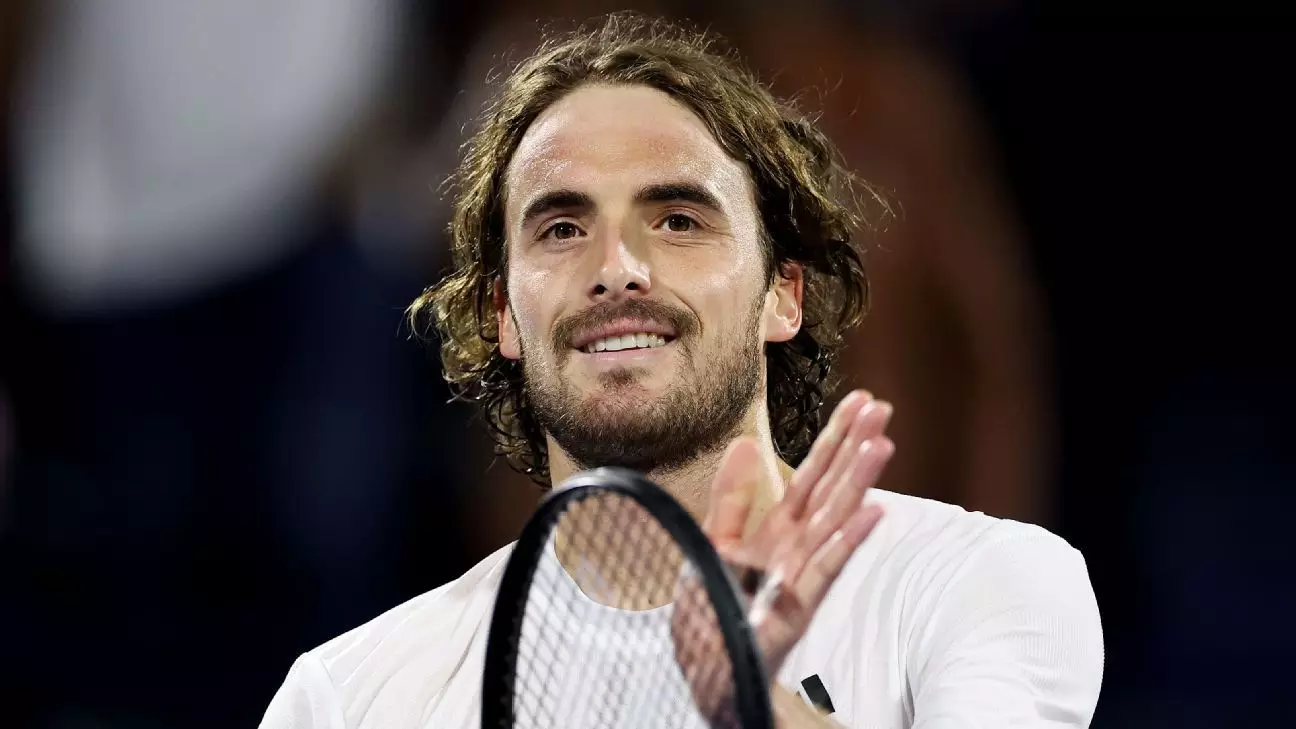In a sport often dominated by external coaching figures and headline-grabbing partnerships, Stefanos Tsitsipas’s decision to rehire his father as his coach speaks volumes about the importance of intrinsic motivation and emotional grounding in tennis. It’s a bold move reflective not merely of a desire for familiarity but perhaps a recognition that true resilience stems from within. Tsitsipas, now 26, appears to be questioning the validity of flashy collaborations, opting instead for the fundamental trust he has shared with his father since childhood. This shift underscores a powerful belief: that the core of athletic excellence is rooted in authentic bonds rather than transient coaching stints.
The Pitfalls of Over-Reliance on External Help
Tsitsipas’s brief partnership with Goran Ivanisevic, despite the Croat’s decorated career, proved to be a miscalculated gamble that did not yield the results expected. The stark contrast between Ivanisevic’s past successes with Novak Djokovic and Tsitsipas’s recent struggles highlights a critical truth: coaching alone does not guarantee success. The Greek player’s recent results—dropping to 30th in the rankings and early exits at Grand Slams—reveal that mere tactical advice can’t replace internal confidence and mental stability. Sometimes, even the most illustrious external figures cannot breathe new life into a player who is fundamentally lost within his own game.
The Psychological Toll of Discontent at the Top
The brutal honesty from Ivanisevic following Wimbledon—labeling Tsitsipas as “unprepared”—illuminates the harsh reality many elite athletes face: external praise and championship accolades mean little if the internal mindset is fractured. Tsitsipas’s recent form signals a crisis of confidence that no amount of external coaching can mend overnight. His journey exemplifies how mental resilience is often more decisive than technical adjustments. The athlete’s mental health, self-belief, and emotional connection to the game become the true battleground for resurgence, not just physical training or strategic tweaks.
The Power of Personal Connections in Sustaining Success
Reuniting with his father signifies a conscious return to roots—a gamble that could either be a catalytic turn or a nostalgic retreat. History suggests that personal connections, especially familial ones, can act as potent anchors during turbulent times. Tennis, a deeply solitary sport, can sometimes alienate even the most dedicated athletes from genuine self-awareness. Tsitsipas’s acknowledgment that “some journeys have a way of circling back,” hints at a broader truth: long-term greatness often requires revisiting and reaffirming core values and relationships. The renewed partnership might restore not just his game but also his sense of purpose and identity on court.
A Chance for a Genuine Comeback
This storyline is less about immediate results and more about the foundation of authentic growth. Tsitsipas’s decision to trust again in what truly matters—family, trust, and emotional stability—could serve as a blueprint for other athletes facing similar crossroads. Success isn’t solely built in elite training camps or cutting-edge facilities; it’s forged in the quiet conviction of knowing who you are and where you belong. His journey reminds us that sometimes the greatest breakthroughs come from revisiting what we already know deeply: that true strength lies within.

